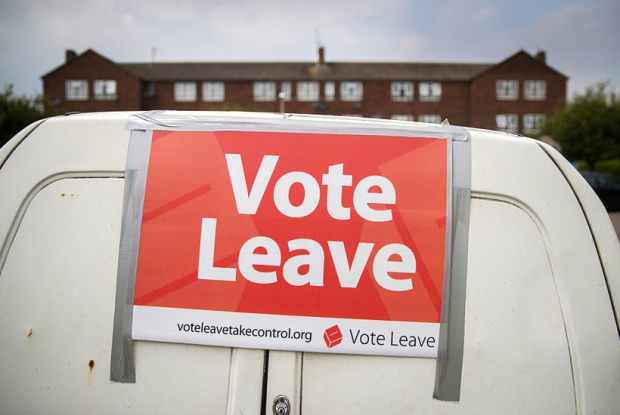The excitement and anxiety was tangible during the election of 1997. Even as a child I was able to pick up on it. I saw the signs of stress in the adults around me: jiggling knees, bitten lips, my mother twirling hair around an index finger.
Elections are stressful and this can cause serious health problems – anxiety, obsessive compulsive tendencies and even depression. A senior editor of a British publication spoke to me about his ‘irrational’ and ‘obsessive’ behaviour around the American election in 2000, in which he was rooting for Dubya:
The internet just was just up and running and I found myself compulsively visiting websites to see if there had been the slightest change, especially after the weird outcome which meant that I didn’t know who was going to be president for three weeks.
I’d click ‘refresh’ every few minutes and every time some judge ruled in favour of Bush I’d get excited, or if something went against Bush. I was at a tube station when I spotted a headline saying Gore was going to pull it off and I felt like jumping under the next train.
I knew it was crazy behaviour but I couldn’t stop myself. My friends would roll their eyes and say, ‘but you’re not even an American’. They just didn’t understand – and neither did I.
How common is this obsessive behaviour at election time, and how much damage can it do? While some degree of worry is normal – particularly about events which will potentially affect our own lives – when it reaches a level this extreme (in a small minority of people, but more than you might think) it is to the detriment of sleep, healthy eating, exercising and face-to-face contact with other people.
Of course journalists and politicians become totally consumed by elections – especially one as nail-biting as this. But if you focus on something all the time it becomes intrusive. Once a thought becomes an obsession it can make us feel as if we aren’t in charge of our own minds.
Elections are also periods of sustained work and sleepless nights for many (if not all) politicians. John Prescott suffered from bulimia during his time in the shadow cabinet, but it got worse after the ’97 election. Whether this was a trigger or whether it was caused by the stress of office is difficult to know. But having to fight for your beliefs and your ability to implement them can make ‘impulse control discorders’, as they’re now called, spin out of control.
One journalist referred to the Scottish referendum as a time when he ‘functioned through that kind of fog caused by getting next to no sleep’. I spent the weeks before the vote on a natural adrenaline high – excited to be covering such an event, and only realising how tired I was the day after the result. When Alex Salmond resigned I cried, even though I don’t like Alex Salmond.
The ‘Post-election Blues’ – a phrase used by the New York Times in the wake of 2008 Presidential election – can attack politically minded people mercilessly, and that includes certain ordinary voters. The end of an election creates a vacuum; after weeks of following a story they are forced to withdraw from the speculation. Their ‘hit’ has been taken away from them.
In an election as highly contested as this one, the post-election blues won’t be soothed by victory – it is unlikely that anyone will be truly happy with the outcome.
Voter disappointment itself has been shown to raise levels of stress hormone Cortisol. In a study conducted by Gal Ifergane and Hagit Cohen during the 2011 election in Israel, voters were shown to have elevated cortisol levels at the ballot box. While the study points out that some stress is normal, and helps with decision making, cortisol can also lead to risk-seeking behaviour – perhaps discrediting the idea that voters are more conservative than radical when they vote.
In the long term, elevated cortisol can lead to weight gain, diabetes, bone loss and metabolic disorders. As cortisol is a response to adrenaline, it pulls calcium from our bones to divert to our muscles, allowing us to run instantly – useful in evolutionary terms but less helpful when you’re facing a ballot box rather than a share-toothed tiger.
In short, elections can be bad for our health, and in this case victory won’t provide a sense of relief for anyone. Except perhaps supporters of the SNP.






Comments